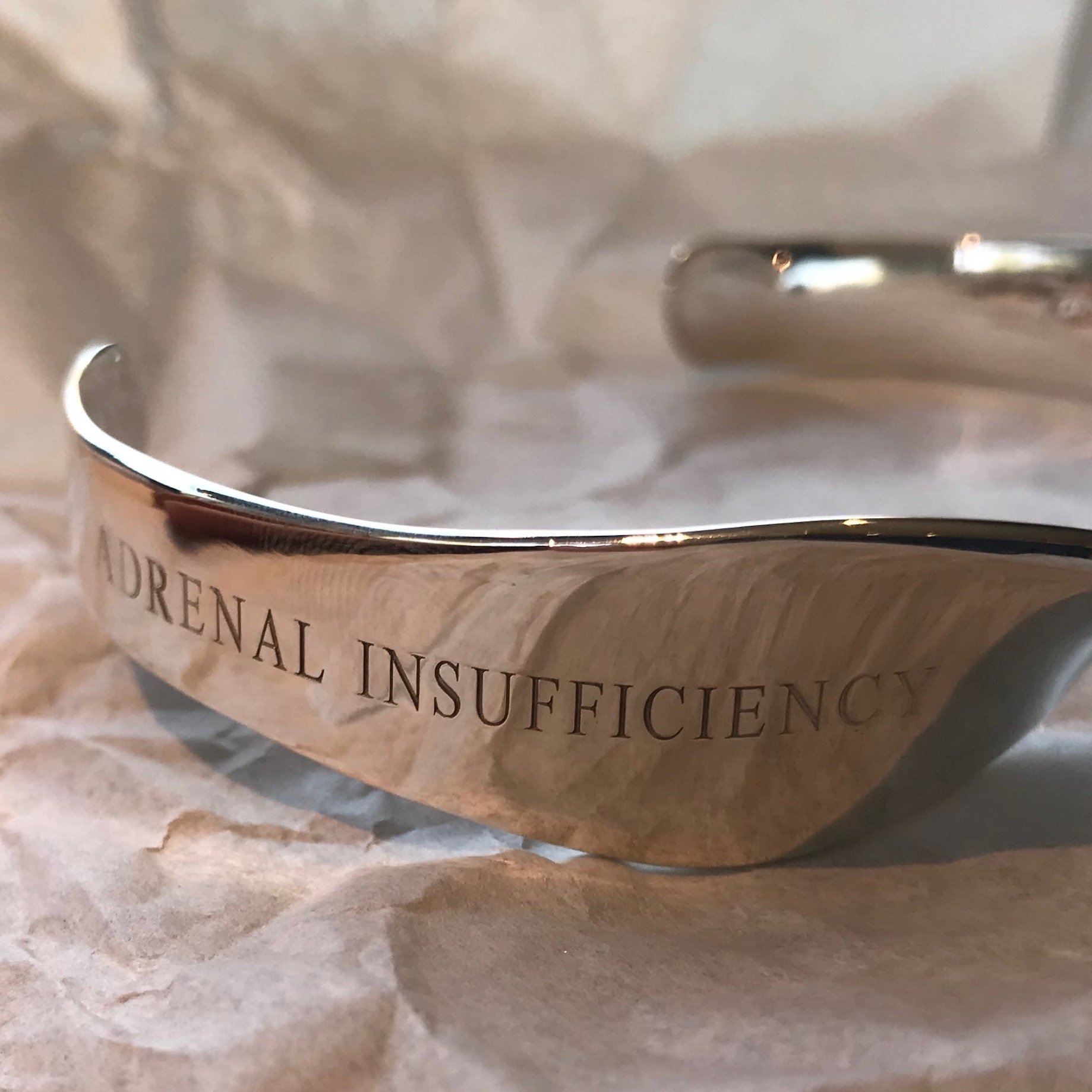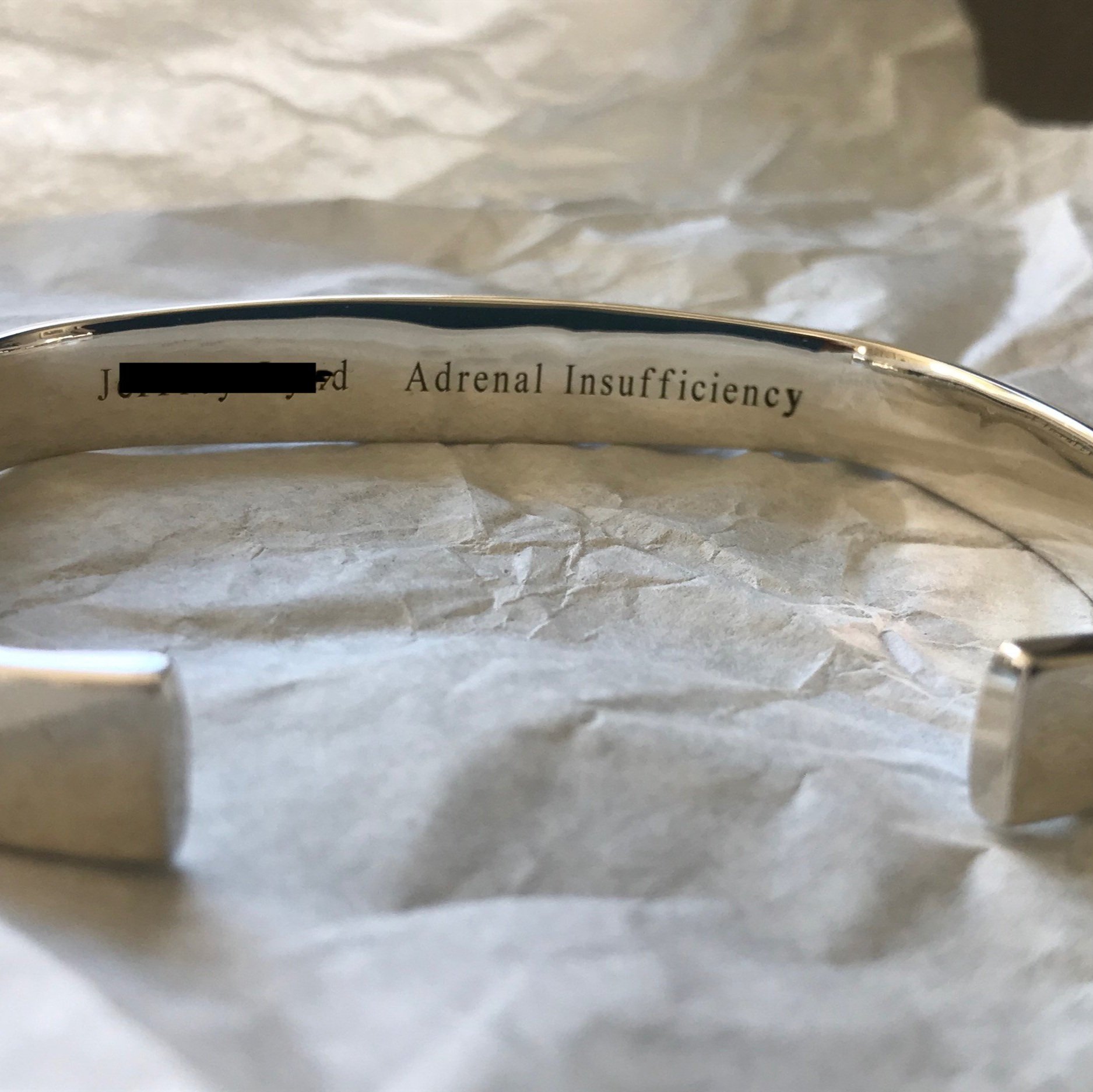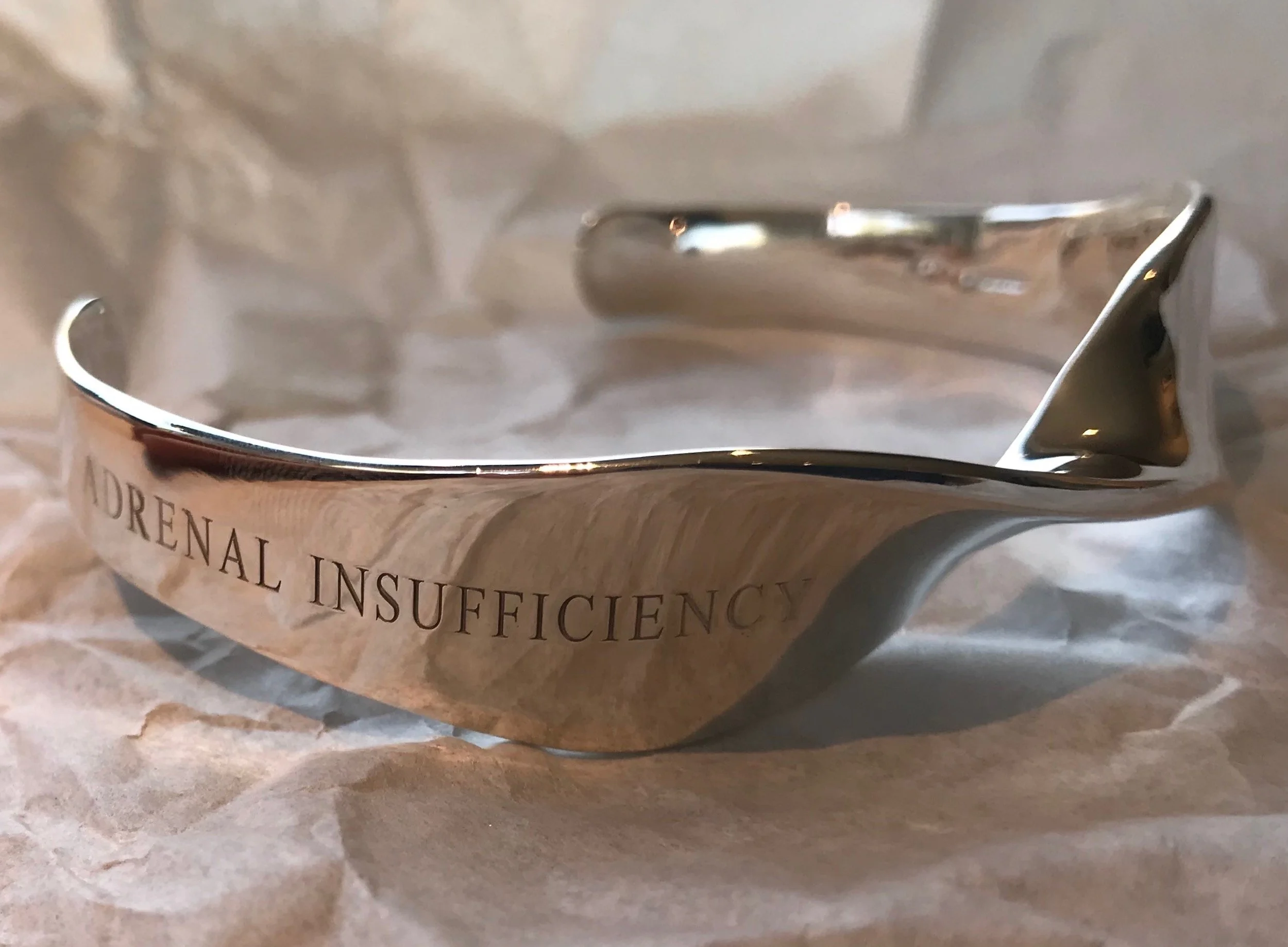Adrenal Insufficiency Bracelets
Addison's disease is a rare and chronic endocrine disorder that occurs when the adrenal glands do not produce enough cortisol and aldosterone hormones. These hormones are essential for regulating blood pressure, blood sugar, and the body's response to stress.
Why Wear a Medical ID Bracelet With Addison’s Disease?
Addison's disease can be life-threatening in case of an adrenal crisis, so it is crucial for medical professionals to be aware of the condition in case of an emergency. Wearing a medical id bracelet can provide important information about your health status, medication use, and emergency contact information.
The following are reasons why it is important to wear a medical id bracelet if you have Addison's disease:
In an emergency situation, a medical id bracelet can quickly alert medical professionals to your condition, which can help them make informed decisions about your treatment.
Addison's disease requires lifelong medication use, which can increase the risk of medication interactions or adverse reactions. A medical id bracelet can inform medical professionals of the medications you take, which can help prevent potentially harmful drug interactions.
Addison's disease can affect the body's response to stress, such as an infection, injury, or surgery. In these situations, the body may require higher doses of corticosteroids. A medical id bracelet can inform medical professionals of your condition and the need for increased corticosteroid doses during times of stress.
Addison's disease can cause electrolyte imbalances, such as low sodium levels, which can cause serious complications. A medical id bracelet can inform medical professionals of your condition and the need for careful monitoring of electrolyte levels.
Diagnosis of Addison's Disease
The symptoms of Addison's disease can be subtle and may take years to develop. A doctor will typically perform a physical examination and order blood tests to diagnose the condition. These tests may include:
ACTH stimulation test: This test measures the response of the adrenal glands to the hormone ACTH, which stimulates cortisol production. A low cortisol level after ACTH injection is a sign of Addison's disease.
Blood tests: Blood tests can measure the levels of cortisol, aldosterone, and electrolytes, such as sodium and potassium, which can be affected by Addison's disease.
Imaging tests: CT scans or MRIs may be used to examine the adrenal glands and rule out other conditions.
Symptoms of Addison's Disease
The symptoms of Addison's disease can be vague and are often mistaken for other conditions. The most common symptoms include:
Fatigue and weakness
Weight loss and decreased appetite
Nausea and vomiting
Low blood pressure and dizziness
Darkening of the skin, especially in sun-exposed areas
Salt craving
Muscle and joint pain
Depression and mood changes
If left untreated, Addison's disease can lead to a life-threatening condition called an adrenal crisis. An adrenal crisis occurs when the body is under stress and requires more cortisol than it can produce. This can cause severe symptoms such as:
Confusion and agitation
Severe abdominal pain and vomiting
Dehydration and low blood pressure
Loss of consciousness
Treatment of Addison's Disease
Addison's disease is a chronic condition that requires lifelong treatment. Treatment typically involves replacing the deficient hormones with medications. The medications may include:
Corticosteroids: These medications, such as hydrocortisone or prednisone, replace the missing cortisol hormone.
Mineralocorticoids: These medications, such as fludrocortisone, replace the missing aldosterone hormone.
It is important to work closely with a doctor to determine the correct dose of medication, which may need to be adjusted based on the individual's needs and any changes in their health.
Addison's Disease Online Resources
Addison's Disease Self-Help Group (ADSHG): A UK-based organization offering support, information, and resources for people with Addison's disease.
National Adrenal Diseases Foundation (NADF): A U.S.-based foundation dedicated to providing information, support, and advocacy for individuals with adrenal diseases, including Addison's disease.
The Pituitary Foundation: While not exclusively focused on Addison's disease, this UK-based foundation provides information and support for individuals with various pituitary-related conditions.
The Hormone Health Network: An educational resource from the Endocrine Society offering information about Addison's disease and other endocrine disorders.
American Association of Clinical Endocrinologists (AACE): A professional medical organization that provides patient education materials on various endocrine disorders, including Addison's disease.
Addison's Disease Foundation (Australia): An Australian organization dedicated to raising awareness and providing support for individuals with Addison's disease.
European Society for Endocrinology (ESE): ESE provides information on various endocrine disorders, including Addison's disease, through its website and publications.
National Organization for Rare Disorders (NORD): NORD provides information on rare diseases, including Addison's disease. Their page includes an overview of the condition, as well as links to additional resources.


